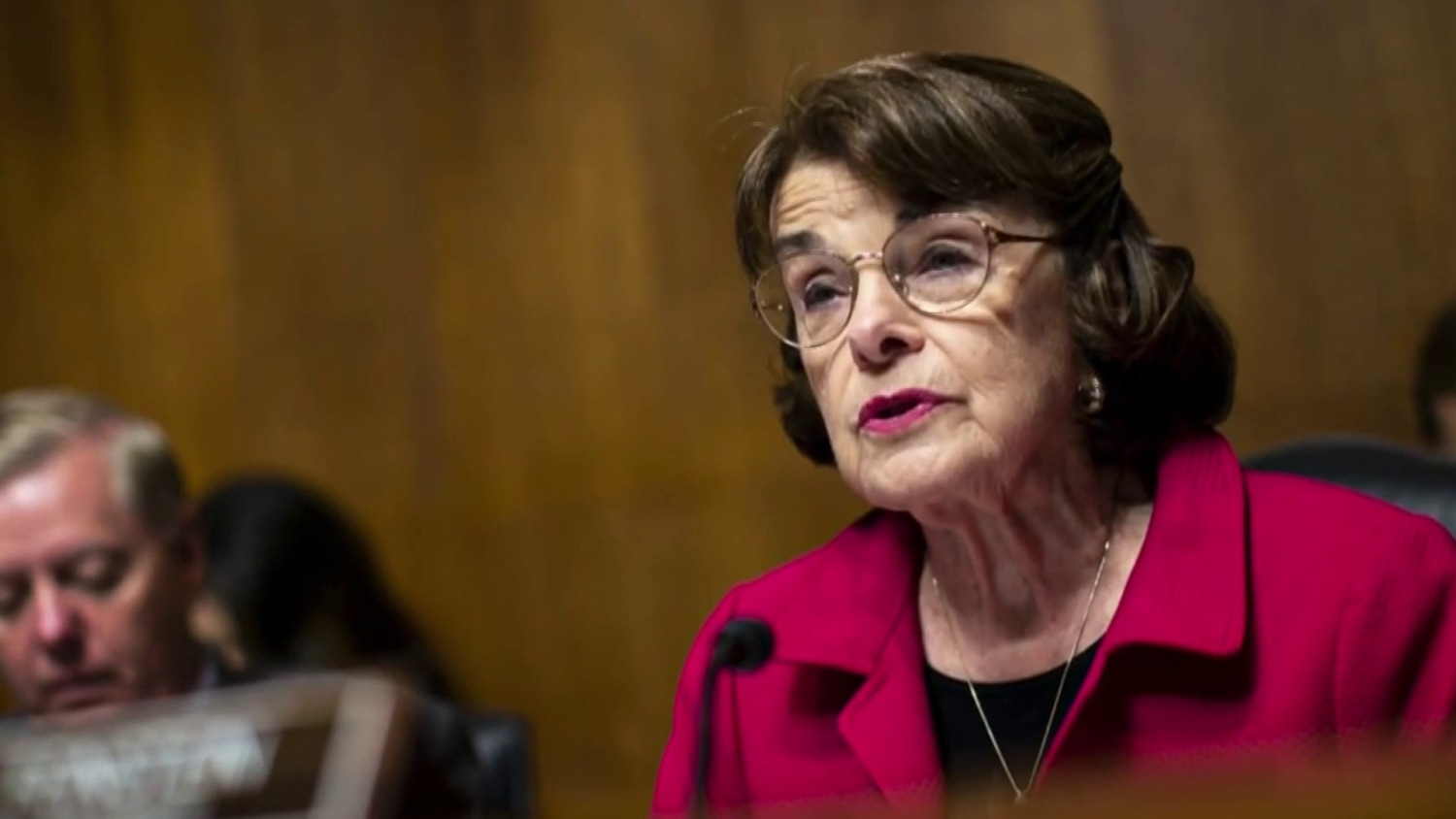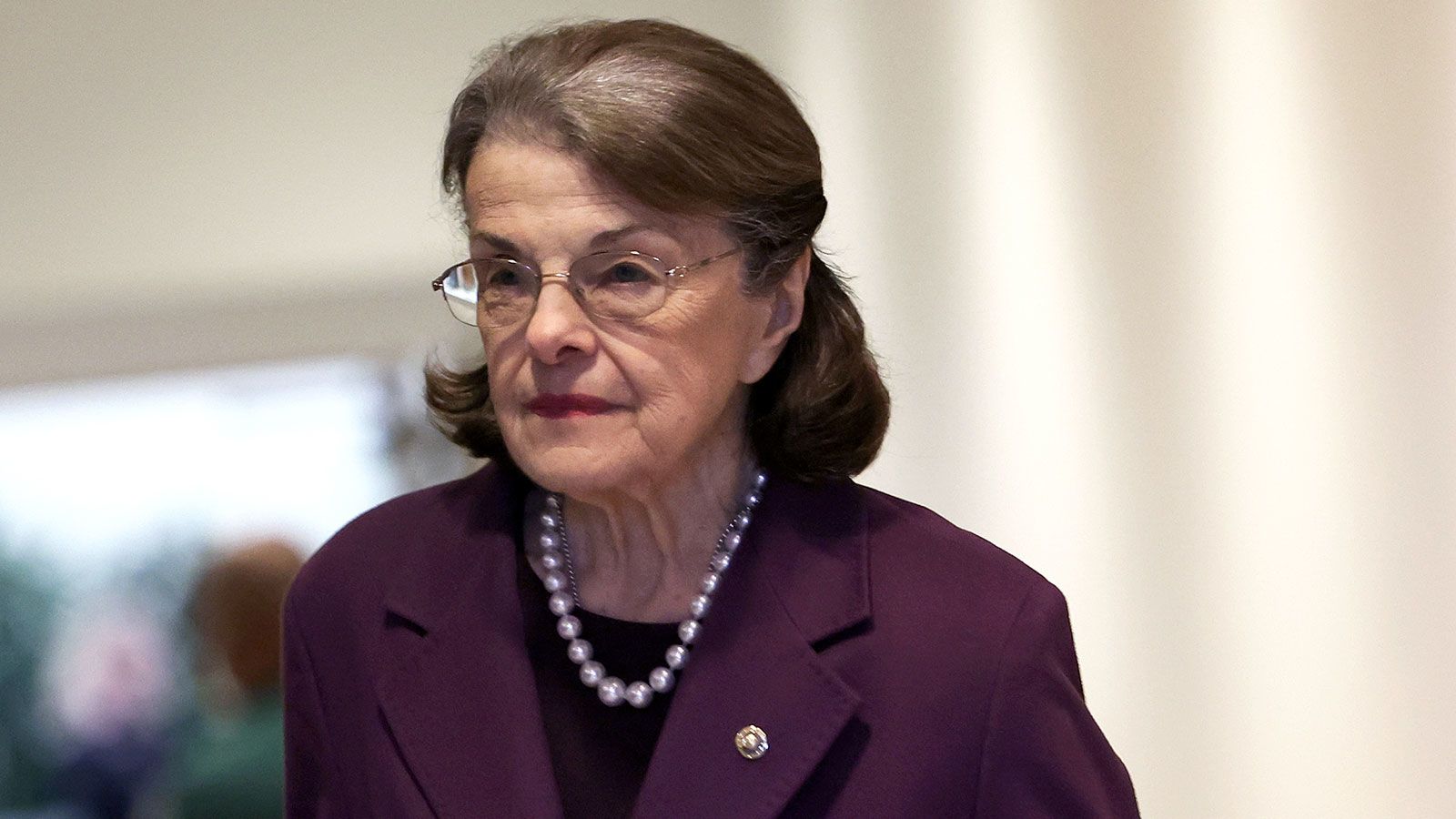Sen. Dianne Feinstein announced on Thursday that she was hospitalised in California due to shingles, but that she plans to return to Washington to vote later this month.
This comes only two weeks after the California Democrat, at age 89, and the oldest serving senator, said she will resign at the conclusion of her tenure in 2019.
“I was diagnosed with a case of shingles over the February vacation,” Feinstein stated in a statement. I am currently a patient in a hospital in San Francisco and am hopeful for a speedy recovery. Later this month, I plan on making my way back to the Senate.
Due to her sickness, Feinstein has missed three votes this week, leaving Vice President Kamala Harris to cast the deciding vote.
It’s possible that Pennsylvania Democrat Senator John Fetterman, 53, may be out of commission for a while as he deals with severe depression he was diagnosed with after being taken to Walter Reed National Military Medical Center two weeks ago.

Source: CNN
Democrats have a razor-thin 52-48 majority in the Senate.
There have been mounting concerns about Feinstein’s health in recent years, particularly whether or not she can handle the mental demands of her high-profile roles. A fellow senator beat her out for the chance to make history as the Senate’s first female Judiciary Committee chair.
There was talk that she wouldn’t finish her term, giving Governor Gavin Newsom an opportunity to appoint someone else. Even in 2021, he made it clear that if Feinstein resigned early, he would appoint a Black woman to replace her.
Yet, Feinstein has stated on many occasions, most recently last month, that she intends to serve until the conclusion of her tenure in late 2024.
The competition to replace Feinstein had already begun before she declared she would not run again, but the seat becoming vacant immediately would add a new aspect.
Katie Porter, of Irvine, Adam B. Schiff, of Burbank, and Barbara Lee, of Oakland, all of the Democratic Party, have declared their candidatures for the seat.
Because of Feinstein’s and Fetterman’s temporary absences from Washington, Harris has been thrust back into his previous job as Senate president.
This week, she had to cast the deciding vote in a trio of tie-breaking situations involving two judicial nominations, including the nomination of Araceli Martinez-Olguin to the U.S. District Court for the Northern District of California.
Senators Michael D. Crapo (R-Idaho) and Jeff Merkley (D-Oregon) also resigned this week, joining Feinstein and Fetterman in the exits (R-Idaho).
There have been 50 Democrats and 50 Republicans in the Senate for the past two years (including two independent senators who caucus with them). In the event of a tight vote, even one person’s absence may swing the outcome. Also, this meant that Harris had to use her tie-breaking skills 26 times, more than any vice president in contemporary history.
For fear of a tie vote in the Senate, Harris was essentially tethered to Washington and seldom managed to maintain even dinner commitments.
The Democrats increased their majority by one seat in the midterm elections last November, giving them a little breathing room and, in theory, making Harris less necessary.
Recent absences, though, highlight the precarious nature of the Democrats’ Senate control.
As the House is now under Republican control, the Senate’s legislative agenda has shrunk significantly, as the majority of Democratic demands will never pass the House.
Nevertheless, the Senate is still facing close votes on confirming the Biden administration’s judicial and administrative nominees, such as former Los Angeles Mayor Eric Garcetti’s nomination as ambassador to India and former California labour chief Julie Su’s nomination as the next U.S. Labor secretary.
Read Also: Ida Mcbeth Cause of death? How did Ida Mcbeth die?










































